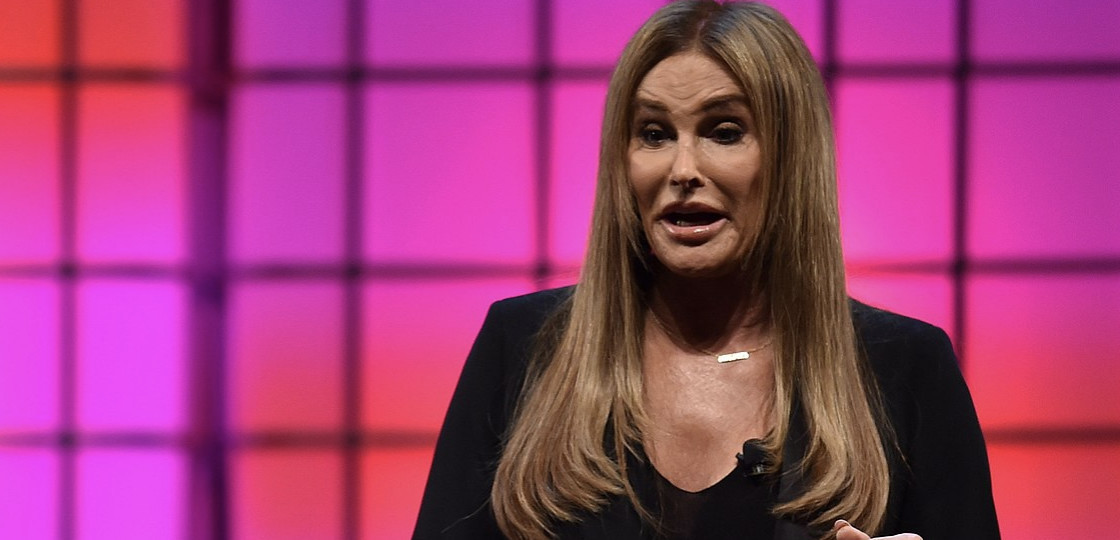
Jenner appeals to Californians' best sense of themselves. In a tongue-in-cheek reference to the state's pro sports teams, California citizens are characterized as "warriors," "kings" and "angels," as well as "trailblazers" and "innovators." Jenner then taps into the state's history. "California was once the envy of the world," the ad says. "We had what everyone else wanted. The American dream grew up here." Images from California's heyday stand in stark contrast to more recent footage of homeless people, tent cities and enormous bags of used needles collected from filthy city streets.
"(C)areer politicians and their policies" are to blame for California's plight," according to Jenner. References are made to wildfires, rioting and COVID lockdowns that closed schools, banned worship services and shuttered small businesses. "The government," Jenner intones, has "taken our money, our jobs and our freedom."
Jenner points out the hypocrisy, venality and elitism of the Democratic politicians who control the state. We see security camera video of a maskless House Speaker Nancy Pelosi getting private beauty treatments at a time when salons in California were closed, their owners and employees out of work. Newsom (whom even The New York Times describes as "a rich San Franciscan" with "long ties to ... Nancy Pelosi" — Newsom is her nephew — who "has always been more inevitable than loved") is shown attending a dinner party at the five-star French Laundry restaurant in San Francisco while the rest of the state was in lockdown.
Perhaps the most stunning aspect of Jenner's ad is its incorporation of her personal journey from Bruce Jenner, 1976 Olympic decathlon gold medalist, to Caitlyn Jenner, arguably the world's most famous transgender individual.
The ad quite remarkably ties those seemingly disparate aspects of Jenner's life together and presents them as qualifications for the state's highest political office. The ad contrasts the athletic races won as Bruce with "a different kind of race" that is arguably the "most important one yet: to save California." Jenner is described as someone who can overcome the state's "big hurdles," a leader who can "leap to new heights" and "challenge ... the status quo." Jenner promises that to "reclaim" the state's "true identity" and "bring back the gold to the Golden State."
It's too early to say whether Jenner has a real shot at the governor's office (of course, this is the same state that once sent actors Ronald Reagan and Arnold Schwarzenegger to Sacramento). But Caitlyn Jenner is not the only one shaking up conventional wisdom about political affiliation. Ric Grenell, former acting director of national intelligence and ambassador to Germany under former President Trump — and a gay man — is also contemplating a gubernatorial run in California as a Republican.
This phenomenon is playing out across the country. Blacks, for example, are running for political office as conservatives and garnering national attention. John James ran for U.S. Senate in Michigan in 2020 and narrowly lost to Democratic Sen. Gary Peters. Vernon Jones, a former Democrat state legislator from Georgia, recently switched parties and has announced his intention to run for governor as a Republican, challenging GOP incumbent Brian Kemp.
In truth, Democrats abandoned their core message — and their base — years ago, leaning more and more heavily on identity politics. They have been insulated from the consequences of that abandonment by the legacy media that covers for them, and by Republicans, who — with a few notable exceptions — have done a consistently lousy job of communicating the merits of conservatism, preferring instead to spend all their time cowering before Democrats' increasingly hysterical accusations.
That is, until Donald Trump entered the picture.
If you think Trump has destroyed the Republican Party, you're either a casualty of the left's propaganda war or you're rooting for the losing RINO (Republican in Name Only) team. The truth is that Trump's fearless and bombastic style, as well as his belief in America's potential, appealed to millions of people in demographic groups that the Bush-Cheney-Romney-Ryan-McConnell Good Ol' Politicians Club was too timid or too dismissive to engage.
Despite the traditional media's relentless lies about Trump, and the social media giants' censorship of him, Trump's "America First" message has resonated with tens of millions of Americans. As JWR columnist Salena Zito noted during the 2016 presidential campaign, Trump's followers took seriously his vision for a country with real possibilities for them and either ignored or, frankly, welcomed his blunt demeanor.
As a result, the nation's political landscape has irrevocably changed. Immigrants, minorities, small-business owners, farmers, the military and the working class are gravitating toward the message of conservatism.
When you listen to the mouthpieces for the Democratic Party, it's clear why. Their economic vision is as bankrupt as the nation will be if we follow it. Their foreign policy is capitulation. Domestically, they allow lawlessness, preach division and resentment, and promote massively confiscatory policies that they claim will remediate "inequities" but will only destroy America's prosperity while making politicians and their cronies rich.
What happens when the constituencies Democrats have counted on for votes finally grasp the failure of the policies they've run on for decades? What happens when immigrant, Hispanic, Black, Asian, gay and trans candidates for public office run on a Republican ticket, with a pro-America, pro-worker, pro-military, pro-small business, pro-individual liberty message?
We're finding out now. And it's fascinating to watch.
(COMMENT, BELOW)
Laura Hirschfeld Hollis is on the faculty at the University of Notre Dame, where she teaches courses in business law and entrepreneurship. She has received numerous awards for her teaching, research, community service and contributions to entrepreneurship education.


 Contact The Editor
Contact The Editor
 Articles By This Author
Articles By This Author